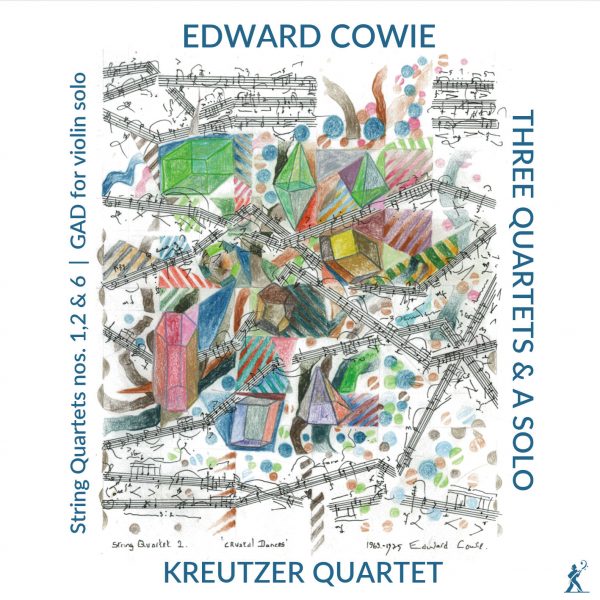The Chronicle Review Corner
An explanatory title that sums up what’s on here … but that’s the only simple thing about it.
The opening quartet (the players being violin, viola, cello) is Dungeness Nocturnes, the eponymous cuspate foreland being home to both wildlife and a nuclear power station. Cowie is “considered by many to be the greatest living composer directly inspired by the natural world” say the sleeve notes and as an under¬graduate he studied physics; one of his Ph.Ds included studies in physics, mathematics and music — so Dungeness would appear to be have been created to inspire him. The sound seems more related to the nuclear physics than nature, evoking particles flying about and slightly fragmented, though plucked violin strings suggest water or hopping birds.
Quartet No.2 is Crystal Dances, which we guess is also inspired by physics, and again the music is fragmentary. The solo work is GAD — an autobiographical piece named for the composer’s condition, general health anxiety. As he wrote the piece he “sank into the maze/labyrinth of a series of panic attacks and depression”, but carried on working. The result is — surprisingly — easy on the ear as it shifts about its sound and tone, reflecting Cowie’s state of mind, from practically coming to a halt to nods at jazz, but with none of the feeling of unease that accompanies such attacks.
The closing quartet is Four Winds, one section for each of four winds, and one per season.The sleeve notes (which you can download from the Divine Art website) explain what inspires Cowie (nature, biology, music being part of “a vast interconnecting formal and cosmic dynamic”) but not the actual pieces, so that’s up to the listener.
It’s modern in that it’s not big on melody but it’s not so fragmented or jarring to render it un-approachable, but it is somewhere in the middle, and closer to the modern. Probably one for more adventurous listeners.
The Kreutzer Quartet play well; its members include violinist Peter Sheppard Skærved, always a safe pair of hands.
@divineartrecordingsgroup
A First Inversion Company
Registered Office:
176-178 Pontefract Road, Cudworth, Barnsley S72 8BE
+44 1226 596703
Fort Worth, TX 76110
+1.682.233.4978












